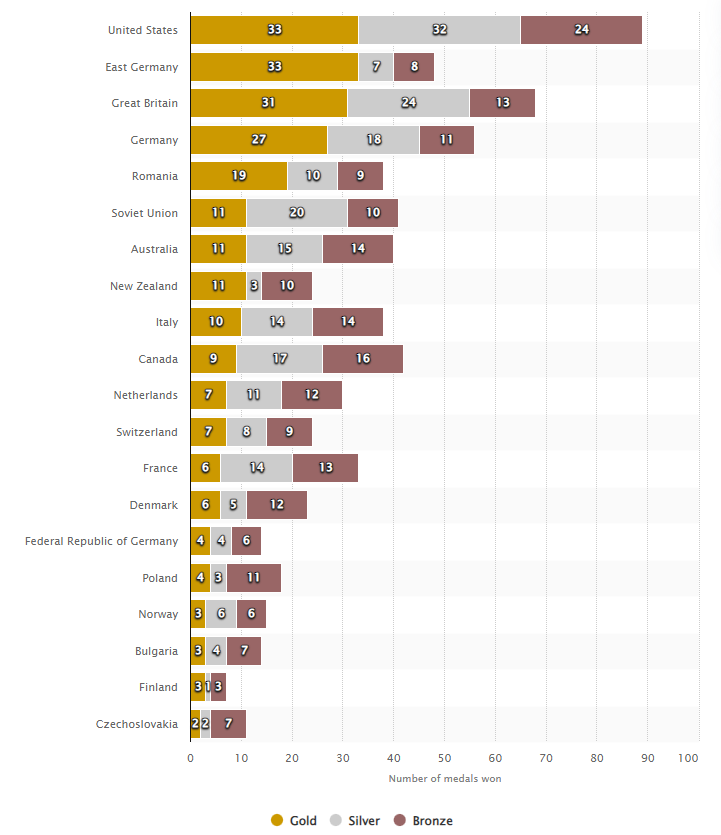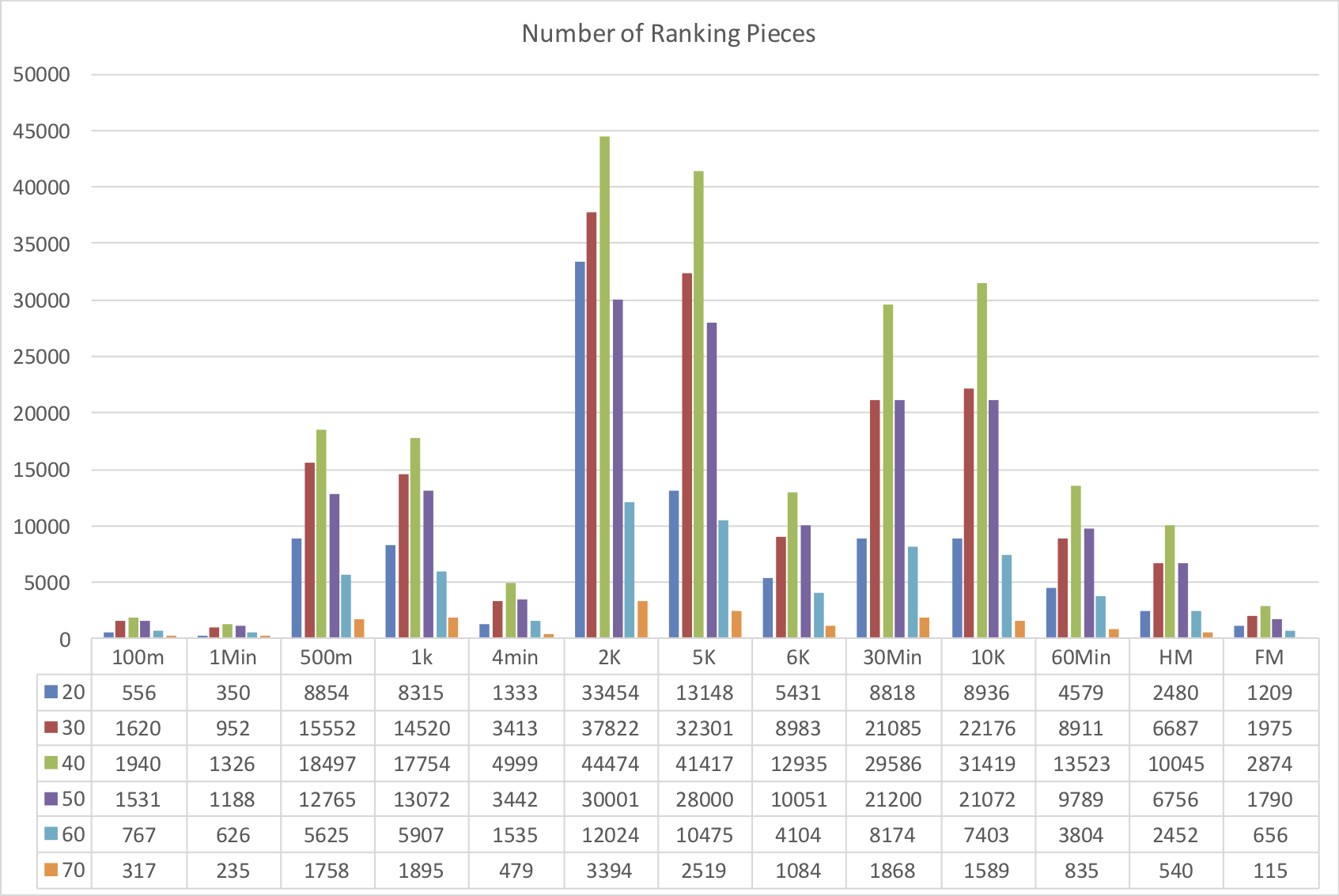At the moment, there are many different sports that will suit the capabilities and preferences of any person. Moreover, every year new activities arise, which can gradually push out older and irrelevant ones. This process can be traced in the case of such a sport as rowing, which has gained particular popularity and has become part of the Olympic Games program, but at the moment, does not have such popularity among young people as other types of physical activity.
Thus, rowing gained popularity in the nineteenth century and spread quite quickly around the world. Later it became part of the Olympic Games program, and winning a medal in this area had great prestige for the country. Therefore, the United States of America became the record holder in the number of awards in this sport, collecting 33 gold and 32 silver medals (Fig.1). Gradually, rowing spread in colleges, and students still take part in competitions in this activity. Research stated that “not only does rowing act as a great form of exercise for athletes, but many students are also attracted by the camaraderie displayed in a rowing crew” (Hao, 2020, para. 5). Despite this, the introduction of new sports gradually pushed rowing from its leading position.

A large number of factors influenced the shift of the studied sport in the list of popular physical activities. Hence, one of them is the fact that rowing is more suitable for young people under thirty (Fig. 2). This is due to the fact that this sport requires quite a lot of effort to develop speed and maneuvering and, to a large extent involves the work of the upper joints and limbs. In addition, “in the recent slew of college recruiting scandals, a few wealthy parents and coaches have been accused of using rowing as a means of getting accepted into prestigious colleges” (Hao, 2020, para. 4). Therefore, the popularity of this type of sports activity may be called into question. This is supported by the fact that students can only use it as a justification for achieving their own goals while never engaging in it. It is worth noting that rowing is criticized due to wealth discrimination and lack of accessibility for individuals. This is due to the fact that often only financially secure people take part in this sport, which also affects the decline in the popularity of the sport.

In conclusion, rowing is a reasonably old sport, which, when it appeared, quickly gained popularity. Hence, it became popular in educational institutions and gradually became part of the Olympic Games program. However, despite this prevalence, this type of physical activity in modern society has been overshadowed by other new activities. This was facilitated by such factors as, for example, the age limit for athletes and financial status of the participants. Moreover, in recent times, the popularity of this sport among college students is due only to the desire to get into an elite educational institution and not a genuine interest in the activity.
References
All-time Olympic rowing medal table as of 2016, by country. (2022). Statista. Web.
Hao, A. (2020). Rowing: not so mainstream. The Aragon Outlook. Web.
Smith, G. (2018). Aging and rowing performance – Part I: Introduction and methodology. Rowing Analytics. Web.